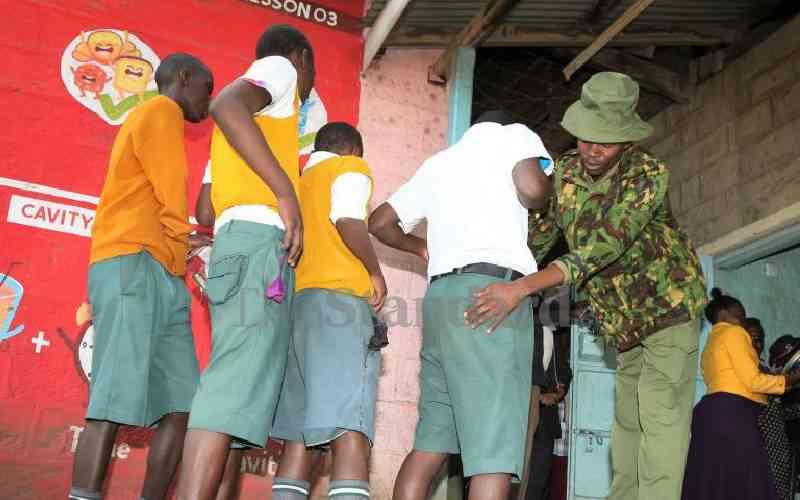×
The Standard e-Paper
Smart Minds Choose Us

The Kenya Defence Forces airlifted all pupils sitting their primary school national examinations from Boni Forest to Faza Secondary School in Lamu.
The learners are to be returned to Boni after the Kenya Primary School Education Assessment (KPSEA) and Kenya Certificate of Primary Education (KCPE) exams.